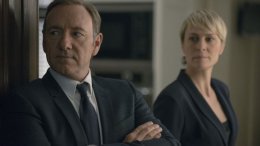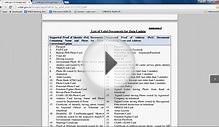
 [Some moderate spoilers contained herein.]
[Some moderate spoilers contained herein.]
I’m working through a number of different theories about why “House of Cards” is so profoundly wrong about American politics while still being a rather entertaining and addictive show. Maybe it’s actually a comedy. Maybe it’s being written by an evil political scientist who knows full well how the American political system works but is aggressively (and most effectively) trolling other political scientists. Maybe it’s just a lazy adaptation of a show about British politics. I’m still not sure.
Certainly part of the problem is that I’m too close to the subject matter. It’s like watching “ER” with a physician (a mistake I’ve made): Some very mundane things are going to be excessively dramatized because that’s far more interesting to a mass audience. If a patient has a bacterial infection, is given a dose of antibiotics and gets better a few days later, that’s a pretty accurate depiction of medicine, but it’s hideously boring television. Now, make it a botched diagnosis, tainted medicine or a super-bacterium, and that’s way more interesting, but it will make a physician crazy because that basically never happens. I get that. But “House of Cards” seems to go beyond hyping the routine. It aggressively depicts things as they are not. Below are a few examples of “lessons” we learn from the show:
There are only one or two smart people in Washington.
Frank and Claire Underwood start off at the beginning of Season 1 as the Democratic majority whip and the head of a small environmental nonprofit organization, respectively. Within two years, they are the president and first lady, all without a competitive election. They did this because they are able to game out people’s behavior and incentives and — this is the key point — no one else is. Much of Washington is just a bunch of naive rubes who want to keep their jobs and avoid bad press, and Frank and Claire are able to exploit that naivete every time. “The West Wing” could certainly get preachy and self-righteous at times, but one thing it got right was that there are lots of smart people in Washington and they’re all working against one another.
"House of Cards" politician Frank Underwood is known for his ruthlessness and witty one-liners. Here are his thoughts on becoming powerful, navigating the halls of Congress and stroking egos - all D.C. staples. (Jhaan Elker/The Washington Post)
Congressional leaders hand-pick presidential nominees.
Early in Season 3, we see the Democratic congressional leadership meeting with President Underwood to tell him that they want him not to run for reelection and that they will be backing someone else, whom they will choose later. This is a form of presidential nomination that went out of style in the 1820s. Congressional leaders may be influential in these sorts of decisions (there’s some evidence that Sens. Harry Reid and Ted Kennedy encouraged Barack Obama to run for president in 2008, and their support was crucial to his decision to run), but they are just a handful of the hundreds or even thousands of party insiders involved at this stage.
RELATED VIDEO




 A postcard or post card is a rectangular piece of thick paper or thin cardboard intended for writing and mailing without an envelope.
A postcard or post card is a rectangular piece of thick paper or thin cardboard intended for writing and mailing without an envelope.










